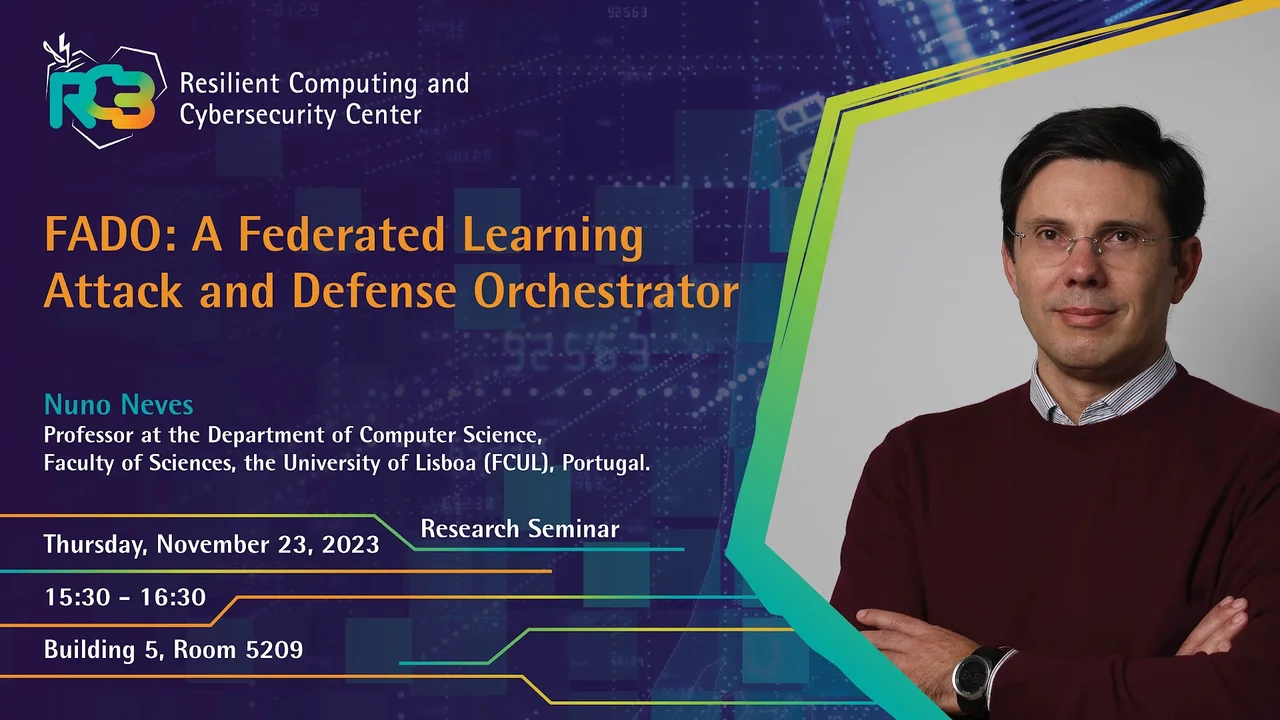
FADO: A Federated Learning Attack and Defense Orchestrator
Federated Learning (FL) is a distributed machine learning approach that allows multiple parties to train a model collaboratively without sharing sensitive data.
Overview
Abstract
Federated Learning (FL) is a distributed machine learning approach that allows multiple parties to train a model collaboratively without sharing sensitive data. It has gained widespread popularity recently due to its ability to preserve data privacy. However, FL also poses novel security challenges since training relies on data and computations from many entities that a malicious actor might have compromised, as they are usually geographically dispersed and independently managed.
Evaluations of current FL security mechanisms in the literature are often based on simplistic testing environments and demand complex programming to integrate new attacks/defenses. Therefore, this work presents an accessible platform that leverages a realistic environment to facilitate the experimentation and evaluation of new solutions in relevant FL scenarios. Comparison with already proposed approaches is also expedited since FADO provides a few out-of-the-box implementations. To demonstrate the platform’s utility, we develop a use case based on a recently published network attack.
Brief Biography
Nuno Ferreira Neves is a Professor at the Department of Computer Science, Faculty of Sciences of the University of Lisboa (FCUL). He is on the Coordination Board of the LASIGE research unit, where he leads the research line on Resilient Distributed and Networked Systems. He also leads the Navigators´s research group. Recently, he was Chair of the IEEE Computer Society Technical Committee on Dependable Computing and Fault Tolerance (TCFT) (2021-2023). His main research interests are in the security and dependability aspects of distributed systems and networks. He investigates models, protocols, and architectures that are suitable for applications with strong dependability requirements, namely applications that need to remain operational despite accidental faults or malicious attacks.
He is involved as a researcher in the European project eXcellence In Variant Testing (XIVT). He was recently co-principal investigator of two national research projects, one on vulnerability discovery in healthcare systems (SEAL) and another on programmable networks (uPVN). In the past years, he contributed to several other projects at the European level, such as SUPERCLOUD, SEGRID, DISIEM, and MASSIF, and nationally, SITAN, DIVERSE, RITAS, and AJECT. His work has been recognized on several occasions, for example with the IBM Scientific Prize, the William C. Carter Award, and the Best Student Paper at DISC. He has more than 130 publications in journals and conferences.